A strong conclusion is just as important as any other essay component, as it’s the last part of the essay that leaves a lasting impression on your reader. Or doesn’t. A well-crafted conclusion does. It ties together your essay’s main points, demonstrates the significance and relevance of your arguments, and leaves the reader with a memorable closing thought. This guide will provide you with tips and tricks on what to do and what to avoid while writing effective essay conclusions.

✅ AI Essay Writer ✅ AI Detector ✅ Plagchecker ✅ Paraphraser
✅ Summarizer ✅ Citation Generator
The Purposes of A Conclusion
The conclusion of an essay has several goals, all of which contribute to the overall quality and success of your work. Although it may look similar to a summary of the essay, it actually is an important component that strengthens your argument and brings closure to your discussion. Understanding the following objectives of a conclusion will help you write one that improves your essay and intensifies its impact. Here are the main goals of a conclusion:
Connect the essay’s main points
A conclusion should briefly tie together the main points of your essay, reminding the reader of the key arguments presented. This helps your professor or other audience get a clear understanding of your main ideas and arguments and how they connect. Summarizing the main points, you reinforce your argument and provide a logical end to your paper.
Prove the Significance and Relevance of Your Arguments
Your conclusion should emphasize why your arguments matter, highlighting their importance and relevance. Summarizing your points isn’t enough for a well-written conclusion. There also should be an explanation of their broader impacts or implications. Demonstrating significance helps the reader understand the value of your argument and why it is worth considering. It also shows the relevance of your points to the overall topic or issue.
Leave the Reader with a Lasting Impression
The final sentences of your conclusion should leave a strong, lasting impression, encouraging the reader to dedicate more time and think deeper about the topic. This can be achieved by ending with a thought-provoking statement, a call to action, or a quote that highlights your main argument. An impactful closing makes your essay memorable and distinguishes it from others.
How to End an Essay
To effectively end your essay, you need to consider all the features that a successful conclusion should have and make sure to present them accurately and in the proper sequence. Only in this way will you not lose but rather deepen your impact and connection with your reader.
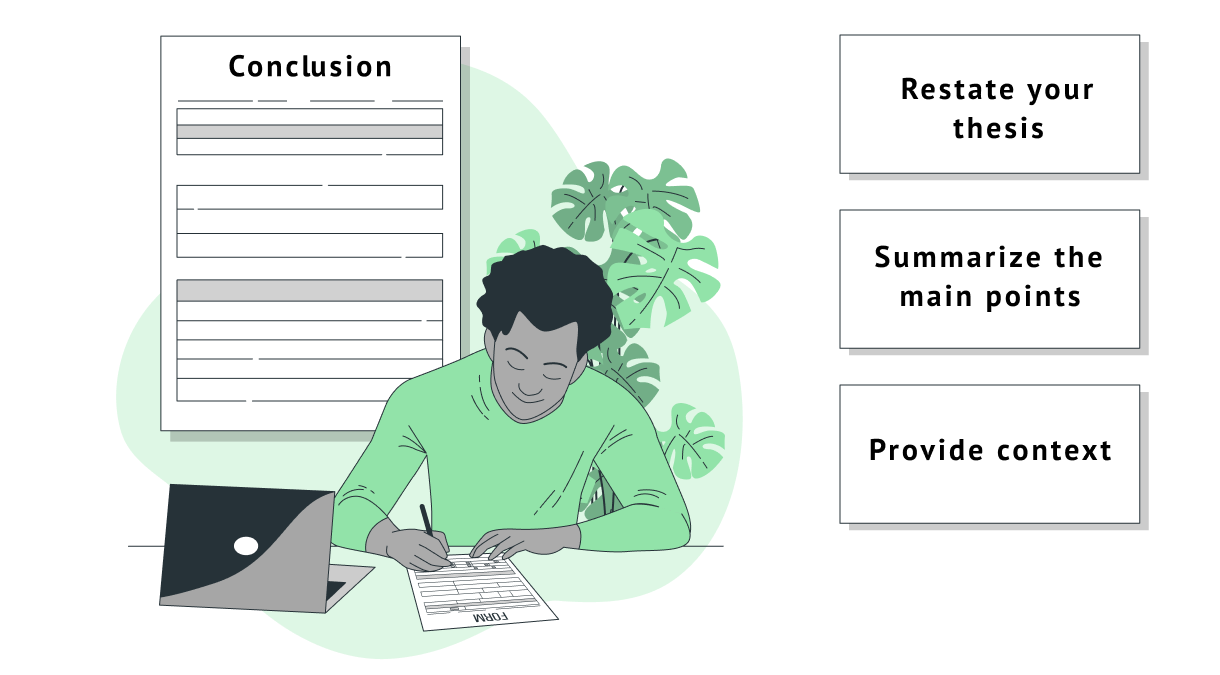
Restate your thesis: Begin your conclusion by restating your thesis in a new way. This backs your main argument without simply repeating it directly or paraphrasing what’s already been said in the body paragraphs. Restating the thesis helps remind the reader of your central argument and shows how the evidence and analysis in the body of the essay support this thesis. By rephrasing it, you provide a fresh perspective on your main point, reinforcing its importance.
Summary of synthesis: Summarize the main points of your writing, synthesizing the information instead of repeating it. You can use a summary generator tool for it. Highlight how the evidence you presented supports your thesis. Synthesis involves combining the key points and evidence to show how they interrelate and support your overall argument.
Provide context: Add context to your conclusion by discussing the broader essence of your argument. Explain how your essay contributes to a larger conversation or addresses an important issue. Providing context helps the reader understand the significance of your argument in a wider scope. It can also involve suggesting areas for further research or highlighting the relevance of your points to real-world situations.
How to Conclude an Essay: Things to Avoid
At the same time, keep in mind that while you’re trying to write the perfect conclusion, you may accidentally make meaningful mistakes and add things that should not be there. Look at the common pitfalls and try to avoid the following mistakes:
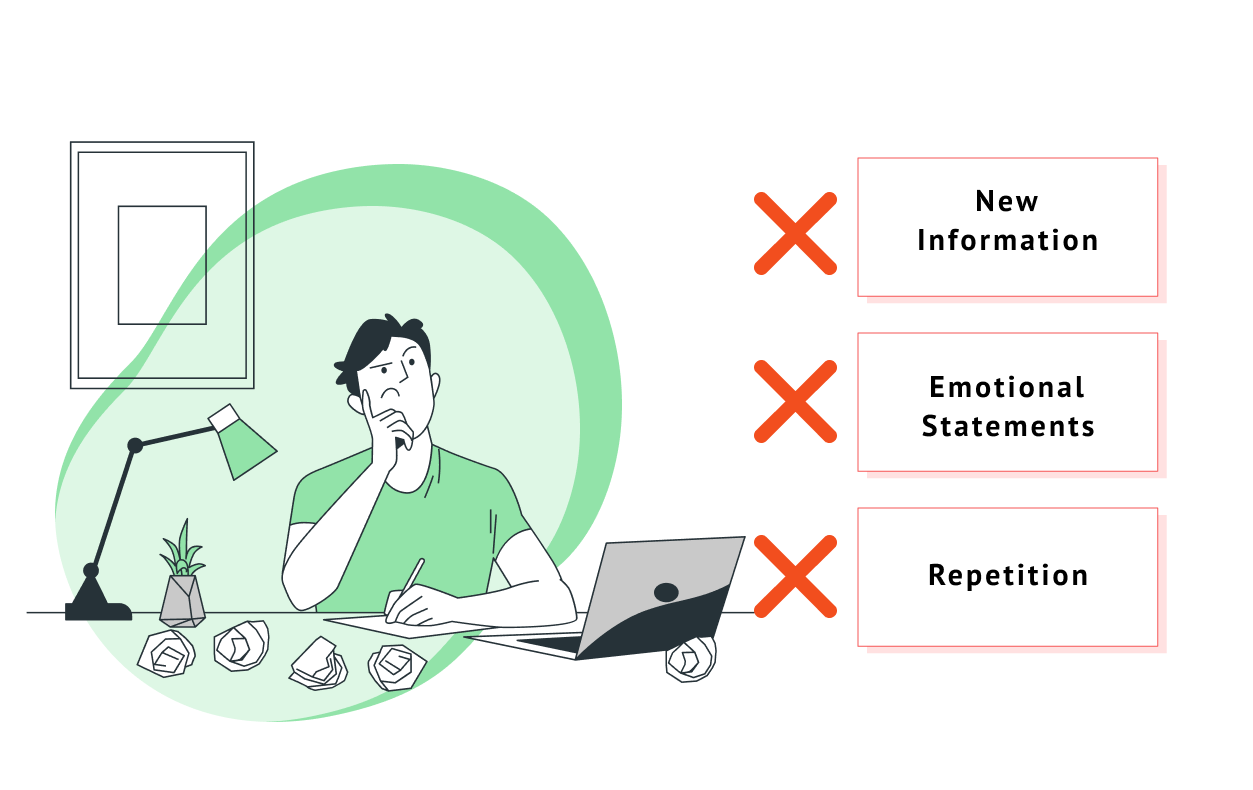
Avoid Introducing New Information. Your conclusion is not the place to introduce new arguments or evidence. Stick to summarizing and synthesizing what has already been discussed. Introducing new information can confuse the reader and distract from the main points of your essay. It is important to keep the conclusion focused on wrapping up your argument and reinforcing what has already been said.
Avoid Overly Emotional Statements. While it’s important to leave an impression, avoid using overly emotional language or making sweeping statements that aren’t backed by anything. Emotional language can undermine the credibility of your argument and distract from your main points. Stick to logical and reasoned statements in your essay.
Avoid Repetition. Don’t repeat your introduction or body paragraphs. Instead, rephrase your key points and present them in a fresh way. Repetition can make your conclusion feel redundant and uninspired. By rephrasing your points, you can strengthen your argument in a more engaging way, keeping the reader interested until the very end.
FAQ
Follow us on Reddit for more insights and updates.


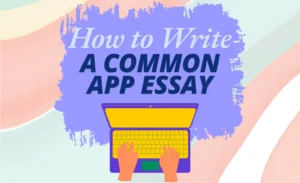
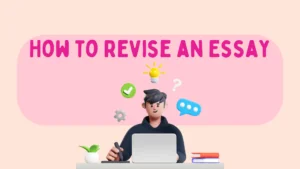
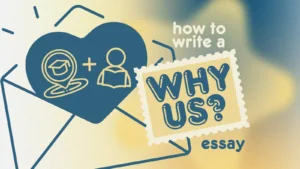
Comments (0)
Welcome to A*Help comments!
We’re all about debate and discussion at A*Help.
We value the diverse opinions of users, so you may find points of view that you don’t agree with. And that’s cool. However, there are certain things we’re not OK with: attempts to manipulate our data in any way, for example, or the posting of discriminative, offensive, hateful, or disparaging material.